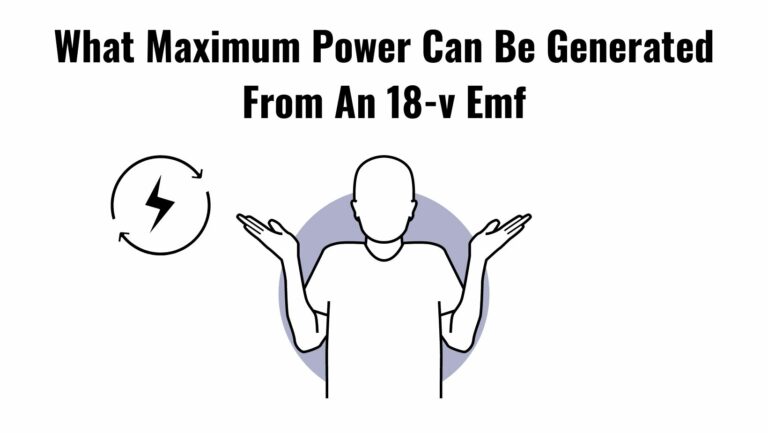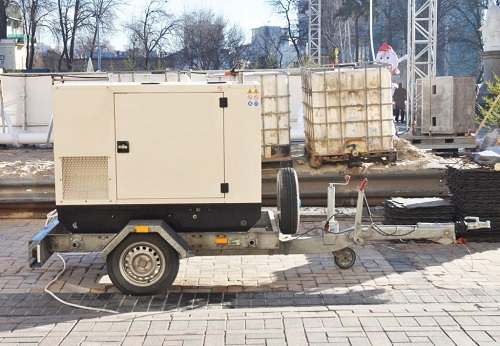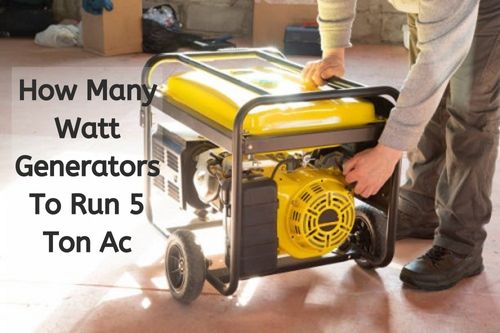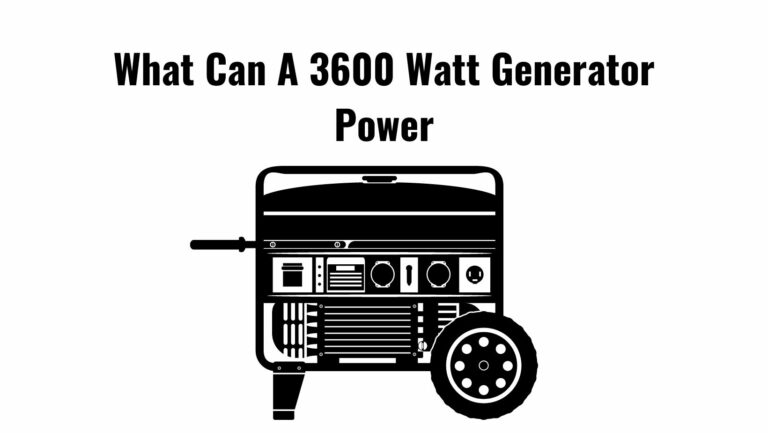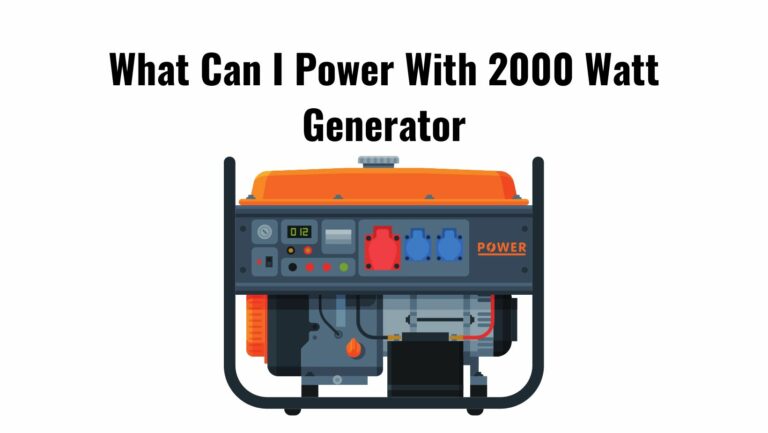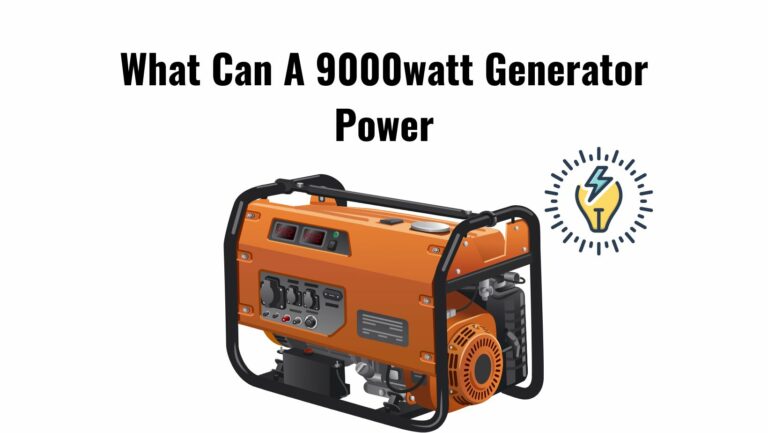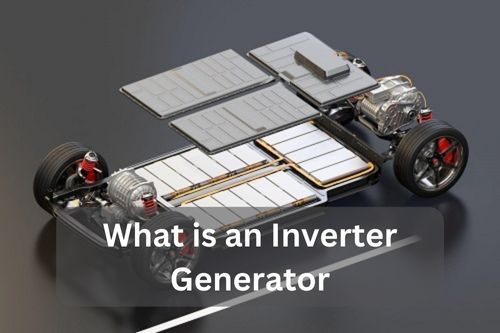
An inverter generator is a relatively new technology that is growing in popularity. This type of generator produces electricity that is cleaner and more consistent than traditional generators, making it a great choice for many applications. If you’re considering purchasing an inverter generator, here’s what you need to know about them.
An inverter generator is a device that converts DC power to AC power. This type of generator is popular because it produces cleaner and more consistent electrical current than traditional generators. Inverter generators are often used for camping, tailgating, or backup power during outages.
They come in a variety of sizes, and some models can even be connected to your home’s electrical system to provide backup power during an outage. Before purchasing an inverter generator, make sure you know the size you need and the features that are important to you. There are many different models available, so be sure to research the options carefully before making a purchase.
Introduction to inverter generator?
Inverter generators are a type of generator that produces alternating current (AC) power. The AC power is then converted to direct current (DC) power by an inverter. This DC power can be used to run electrical devices or charge batteries. Inverter generators are typically more expensive than traditional generators, but they are more efficient and produce less noise.
How does it work?
An inverter generator is a type of generator that produces alternating current (AC) power by converting direct current (DC) power from a battery or other DC source. The inverter generator uses an electronic inverter to produce a clean, stable AC power that is suitable for powering sensitive electronic equipment.
The inverter generator is a relatively new technology that has many advantages over traditional generators. Traditional generators produce AC power by using a mechanical engine to spin an alternator. This type of generator is loud, inefficient, and difficult to maintain.

What is the difference between an inverter and a generator?
An inverter generator is a type of generator that uses an inverter to produce power. Inverters are devices that convert direct current (DC) into alternating current (AC). Generator sets that use inverters are more efficient than those that use generators, and they are also quieter and lighter.
Inverter generators are becoming more popular as people look for ways to save money on their energy bills. Many inverter generators can run for hours without using any fuel, making them very economical to operate. In addition, inverter generators are much quieter than traditional generators.
How to size an inverter generator?
To size an inverter generator, you need to know the wattage of the appliances and devices you want to run. You can find the wattage requirements in the owner’s manuals or on the labels of the appliances and devices. Once you know the wattage, you can choose a generator that can provide the required power.
Inverter generators are available in a variety of sizes, so you can choose one that suits your needs. If you’re not sure about the size, you can always consult a professional to help you choose the right one.
How to choose an inverter generator?
There are many factors to consider when choosing an inverter generator. Some of the most important factors include:
Output power:
The output power is the amount of power that the generator can produce. It is measured in watts. Choose a generator with enough output power to meet your needs.
Fuel type:
Inverter generators can run on gasoline, propane, or diesel. Choose the fuel type that is best for you.
Efficiency:
Inverter generators are more efficient than traditional generators. Choose an inverter generator with a high-efficiency rating to save on fuel costs.
Run time:
The run time is the amount of time that the generator can run without refueling. Choose a generator with a long run time to avoid frequent refueling.
Portability:
Inverter generators are available in both portable and stationary models. Choose the model that best meets your needs.
Price:
Inverter generators range in price from $600 to $3000. Choose the generator that fits your budget.
Warranty:
Choose a generator with a long warranty to ensure years of trouble-free use.
Maintenance:
Inverter generators require less maintenance than traditional generators. Choose a generator that is easy to maintain.
Customer service:
Choose a generator from a company with excellent customer service.
Review:
Read online reviews of inverter generators before making your purchase.
Now that you know how to choose an inverter generator, it is time to decide which model is right for you. The Honda EU2000i is one of the most popular inverter generators on the market.
How to use an inverter generator?
You can save money as well as energy in many ways by using inverter generators. One way to use an inverter is to connect it to a solar panel array. This will allow the solar panels to generate electricity even when there is no direct sunlight, such as during a cloudy day or at night. The inverter will convert the DC power generated by the solar panels into AC power that can be used by household appliances.
Can an inverter generator be used indoors?
Yes, inverter generators can be used indoors as long as there is proper ventilation. The main downside of using an inverter generator indoors is the noise. Inverter generators are designed to be very quiet, but they still produce some noise. If you are using an inverter generator indoors, you should make sure that there is enough ventilation to avoid any potential problems.
FAQs
An inverter generator is a type of portable generator that uses advanced technology to produce clean, stable power. Inverter generators are ideal for a wide range of applications, including camping, tailgating, RVs, and more.
Inverter generators offer several advantages over traditional generators, including:
Clean power:
Inverter generators produce clean, stable power that is ideal for sensitive electronics.
Quiet operation:
Inverter generators are significantly quieter than traditional generators, making them ideal for use in areas where noise is a concern.
Fuel efficiency:
Inverter generators are more fuel-efficient than traditional generators, making them a more cost-effective option.
Inverter generators do have a few disadvantages, including:
Higher cost: Inverter generators tend to be more expensive than traditional generators.
Less power: Inverter generators typically produce less power than traditional generators.
Conclusion:
An inverter generator is a type of generator that uses an inverter to produce clean, stable power. Inverter generators are ideal for sensitive electronics and can be used in a variety of applications, from camping to tailgating. When shopping for an inverter generator, it’s important to consider your power needs and budget. inverter generators are more expensive than traditional generators.
Hope this article helped you understand inverter generators. If you have any questions, please leave a comment below and we’ll be happy to help.
Thank you for reading! Also Read.

